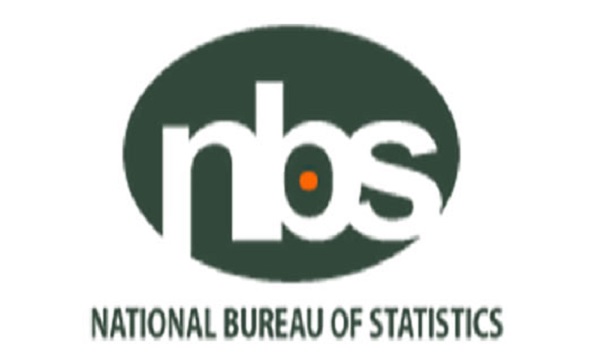Nigeria’s inflation rate eased further to 18.02% in September 2025, marking continued progress in price stability, according to the National Bureau of Statistics (NBS).
The latest Consumer Price Index (CPI) report released by the bureau in Abuja showed a 2.1 percentage point decline from 20.12% recorded in August 2025. On a year-on-year basis, the inflation rate was 14.68 percentage points lower than the 32.70% recorded in September 2024.
Month-on-month, inflation slowed slightly to 0.72% in September, down from 0.74% in August, indicating a slower pace of price increases across consumer goods and services.
The NBS attributed the moderation in the headline index to declines in food prices and other key consumption categories. The largest contributors to annual inflation were food and non-alcoholic beverages (7.21%), restaurants and accommodation services (2.33%), and transport (1.92%). The least contributors were recreation, sport and culture (0.06%), alcoholic beverages and tobacco (0.07%), and insurance and financial services (0.08%).
Food inflation fell sharply to 16.87% year-on-year, down from 37.77% in September 2024 — a decline of 20.9 percentage points, driven largely by price drops in maize, grains, garri, beans, millet, potatoes, onions, eggs, tomatoes, and fresh pepper. On a month-on-month basis, food inflation decreased by 1.57%, compared to 1.65% in August.
Core inflation — which excludes volatile agricultural and energy prices — stood at 19.53% year-on-year, with a marginal decline to 1.42% month-on-month, compared to 1.43% in August.
Across regions, urban inflation moderated to 17.50% year-on-year from 35.13%, while rural inflation slowed to 18.26%, down from 30.49% in the same period last year.
By state, Adamawa (23.69%), Katsina (23.53%), and Nasarawa (22.29%) recorded the highest annual inflation rates, while Anambra (9.28%), Niger (11.79%), and Bauchi (12.36%) posted the lowest.
On a monthly basis, inflation was highest in Zamfara (9.36%), Adamawa (8.15%), and Nasarawa (7.49%), while Niger (-8.14%), Oyo (-5.56%), and Bayelsa (-4.61%) experienced the slowest rise.
The NBS noted that the decline in overall inflation follows the recent rebasing of the Consumer Price Index (CPI), which moved the base year from 2009 to 2024, aligning expenditure weights more closely with current consumption patterns.
The CPI rose to 127.7 points in September, up from 126.8 in August, reflecting moderate price increases amid improving macroeconomic stability.





